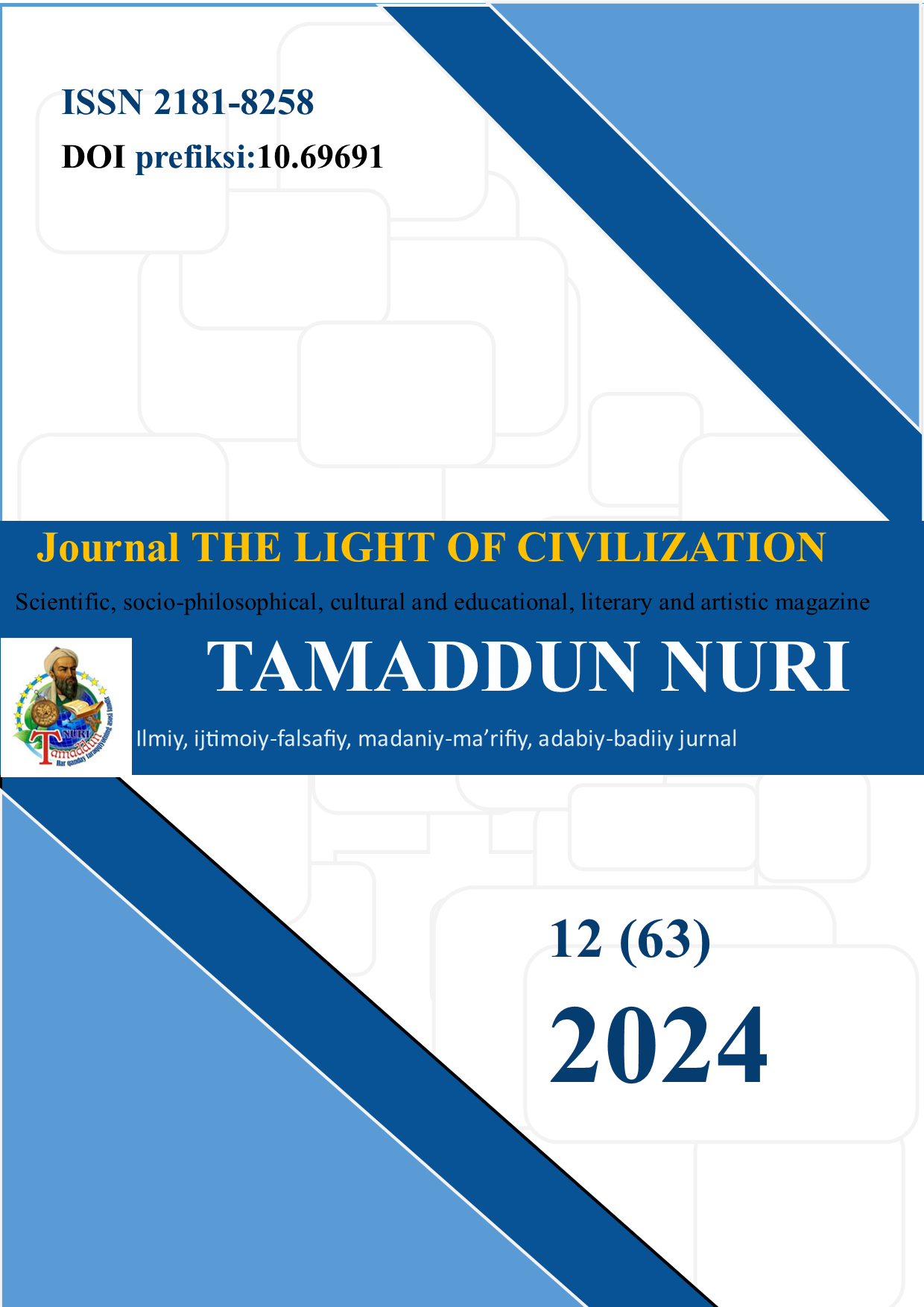TEACHING ENGLISH WITH INTERACTIVE METHODS FOR AGRICULTURAL STUDENTS
DOI:
https://doi.org/10.69691/zj5ypv64Keywords:
professional communication, interactive methods, innovative, agricultural students, speaking skills, CLIL, ESP.Abstract
This article explores the use of interactive methods to enhance professional communication among agricultural students. By integrating problem-based and professionally-oriented situations, Content and Language Integrated Learning (CLIL), and interactive technologies, educators can significantly improve students’ motivation, engagement, and subject-specific competencies. The use of internet-based applications and graphics tablets in English for Specific Purposes (ESP) lessons further enriches the learning process. The findings highlight how these innovative teaching methods prepare agricultural students to meet the demands of their future professional activities.
References
Zhyltyrova, Z., Makasheva, A., Yersultanova, G., & Kydyrbay, K. (2016). Modern Methods in Training Professional Foreign Language for Students Majoring in Agriculture. International journal of environmental and science education, 11, 12289-12297.
Tokmakova, Y. (2020). Methodic model of teaching professional foreign language communication students of “Technology of production and processing of agricultural products” programme based on the model of content and language integrated learning. , 53-63. https://doi.org/10.20310/1810-0201-2020-25-186-53-63
Lemeshchenko-Lagoda, V., & Kryvonos, I. (2020). Interactive means of motivating students to learn English for specific purposes at agrarian and technical universities. , 55, 233-250. https://doi.org/10.31812/EDUCDIM.V55I0.3950
Makarowa, E., & Saenko, E. (2022). Approaches to teaching agricultural university students a foreign language for professional communication. Tambov University Review. Series: Humanities. https://doi.org/10.20310/1810-0201-2022-27-2-410-419
Upa, R., & Damayanti, S. (2022). Incorporating Internet-Based Application in Teaching and Assessing English for Agriculture Students. IDEAS: Journal on English Language Teaching and Learning, Linguistics and Literature. https://doi.org/10.24256/ideas.v9i2.2393
Tokmakova T. Subject Content of Teaching English Language to Students of “Technology of Production and Processing of Agricultural Products” //Vestnik Tambovskogo universiteta. Seriya: Gumanitarnyye nauki= Bulletin of Tambov University. Humanities Series. – 2019. – Т. 24. – №. 183. – С. 35-44.
Satbayevna N. J. Qishloq xo ‘jaligi sohalarida kasbiy muloqotga o‘rgatishda interfaol yondashuvning o‘ziga xosligi //Xalqaro ilmiy-amaliy konferensiyalar. – 2024. – т. 1. – №. 1. – С. 176-179.
Borasheva A. Enhancing summary writing skills through flipped classroom: strategies, advantages, and case studies //UzMU xabarlari. – 2024. – Т. 1. – №. 1.1. 1. – С. 75-78.
Tadjimova S. Students’development of lexical skills throughout english sessions //Наука и технология в современном мире. – 2024. – Т. 3. – №. 5. – С. 26-27.
Alimbetova M. Enhancing lexical competence through authentic texts //Science and innovation. – 2024. – Т. 3. – №. C7. – С. 26-30.
Downloads
Published
Issue
Section
License
Copyright (c) 2024 Journal of Tamaddun Nuri

This work is licensed under a Creative Commons Attribution-NoDerivatives 4.0 International License.



